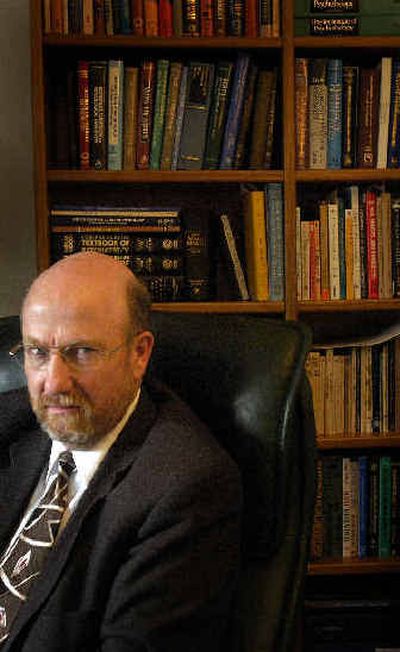Parents: Just go along for the ride

With three children who played a variety of sports at all levels, Spokane psychologist Andrew Haffey has more than a passing interest in the well-being of athletes.
As both parent and professional, he has an understanding of what youngsters have a right to expect from their parents and coaches.
In New York, Rick Wolff, chairman of the Center for Sports Parenting, makes his living advocating sanity in sports for children.
Not that either man’s voice will always be heeded, but both offered sage advice for a good experience for youngsters.
Haffey said that while a child athlete deserves a fair shot, “it doesn’t always happen. Life is unfair and that’s part of what kids have to deal with.”
Most problems, he continued, are generated from adults not youngsters and it takes both diplomacy and assertiveness to create the best possible environment for everyone.
“The majority of coaches my kids have interacted with were straight with kids about what their roles, responsibilities and playing time would be,” Haffey said. “The majority of coaches like kids or they wouldn’t be in this business. In most cases they helped the kids adjust to the realities.”
Haffey said there’s no question, for better or worse, that the vast majority of parents are much more involved in the lives of their athletes and children than were parents of years past.
“Parents need to go along for the ride,” he cautioned. “Some do, some don’t. Parents who over identify with kids, who narcissistically need a kid to succeed for their own self-esteem, are setting themselves and their kids up for disappointment and depression.”
Most psychologically healthy youngsters don’t end up in a depression. He said he has counseled youngsters who felt the pressure to succeed beyond their ability.
“While they accept the reality of their potential, oftentimes parents are slow to the party,” Haffey said.
One of his sons found satisfaction in a second sport after his initial choice hit a dead end.
Haffey’s advice to parents is that they be advocates for their children, support their emotional and physical development, but gradually step back and allow that child to take as much ownership for his or her own development as possible.
He also looked at the club sport mentality through a critical eye.
“We’ve turned this into a whole culture in which our child could become the next star,” said Haffey. “I think (it) has grown way out of proportion to what its importance is. The real importance is to allow more kids to be involved, to experience team and develop skills. What bothered me most is the entitlement to winning that has gotten spawned in general. It is really a disservice to kids and destructive at its worst.”
Wolff said every child on any team, elementary age through high school, has a right to expect meaningful playing time.
“The fun is in the playing and the smart coach realizes it. Every kid comes to a game not hoping to play but expecting to play,” he said. “The smart coach realizes every kid has the same dream and will get a kid playing time during a significant portion of a game.
“The kid’s broken a sweat and feels a coach ‘knows who I am.’ Every kid thinks he’s contributing and everyone goes home happy.”